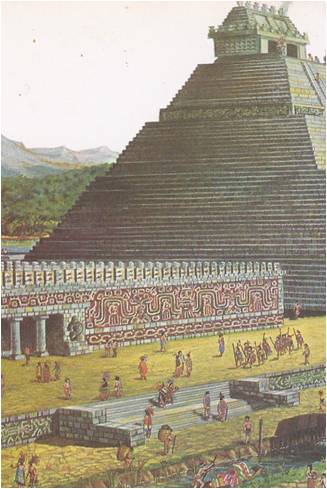Pierre watched the merchant caravan clatter down the narrow dirt road that led through the manor. Pack mules threaded their way to avoid the deep puddles, while the horses strained as they pulled the creaking two wheeled carts. Pierre envied the merchants as well as the sturdy bowmen who guarded the caravan. During his seventeen years Pierre had never been more than a few miles from the manor where he had been born a serf. He was not free to move around as were these merchants who were city folk. Was it true, as Pierre had heard, that a serf …
Read More »The Unification of Italy 1831-1870
ITALY HAD long been divided into small states. All their governments, except that of the Kingdom of Sardinia, were unpopular and continued to rule largely because they were supported by Austria. Italians had a special reason for wanting freedom and unification. They could remember that once the Roman Empire had ruled the world and that later Italy had been the home of free republics. For three hundred years Italy had been invaded and plundered again and again. The last of the invaders was Austria and before the Italians could form one nation they would have to free themselves from the …
Read More »Adventures in the New World 1519 – 1620
“I DID NOT come to till the soil like a peasant,” said Hernando Cortez. “I came to find gold.” His words echoed the thoughts of almost every Spaniard in the New World. The discovery of the sea route to the West had set off a great treasure hunt. Colonizing and slaughtering, building and plundering, the gold-hungry Spaniards won a Spanish Empire of the West. Conquistadores‚ they were called — the conquerors. None of the treasure-hunters was more cunning or ambitious than Hernando Cortez‚ who came to the island of Hispaniola in 1504. It was not until 1519 that the governor …
Read More »Venice, City in the Sea 1350 – 1590
The houses of Venice are “like sea-birds half on sea and half on land,” said Cassiodorus. An officer of a king of the Goths, Cassiodorus saw Venice in 537. It was a little settlement of huts built on the mud-flats in an out-of-the-way lagoon. Its people were refugees‚ Italians who had been driven from their homes by a horde of barbaric invaders. They were safe in the lagoon, for no stranger could navigate the treacherous channels. For the sake of safety, they were content with comforts that were simple at best. “In this place,” Cassiodorus said, “rich and poor are …
Read More »The Town and the Guild 1100 -1382
ONE FINE SPRING MORNING, in the French town of Troyes, in the county of Champagne, a bell rang out through the clear air. The people streaming along the road to the town knew why the bell was ringing; it signaled the start of another day of the fair. Now they walked faster or whipped up their horses, anxious not to miss any of the excitement. Most of them were merchants, who had come to buy the goods that were on display. Some were lords and ladies, who hoped to find gleaming silks from the Orient, or fine Spanish leather, or …
Read More »The Fall of Byzantium A. D. 992-1453
THE LONG struggle between the churches of the East and the West was only one of the many serious problems that weakened the empire and led to its downfall. Trade was another of its problems. Much of goods imported from the eastern world was sold to the west through Byzantine markets. A ten percent tax was collected on an imports and exports as well as on all goods passing through the Bosporus. This was one of the empire’s most important ways of collecting taxes. However, this rich flow of tax money began to get smaller and smaller in the tenth …
Read More »The Great Justinian A.D. 532-565
THE STREETS of Constantinople were thronged that Tuesday morning in January of 532. Public buildings were closed. Shops on the Street of the Silversmiths were barred and shuttered. The barracks at Strategium were occupied by regiments of soldiers which had recently arrived from the frontiers. The soldiers had orders to stay in their quarters, for this was a day of the people. It was the opening day of the great chariot races at the Hippodrome. Most of the people in the crowded streets wore winter cloaks and carried their lunches. Ordinary citizens did not wear Roman togas, for that was the dress …
Read More »





